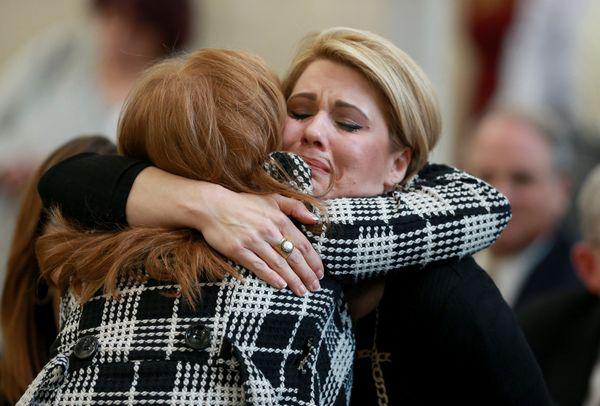|
The church protected pedophiles. Now, will lawmakers protect its secrets?
Star-Ledger
To sum up five hours of absolutely brutal testimony before the New Jersey Senate, some of which will be repeated today for the Assembly: It’s easy to rape a child and get away with it. We heard this from four sisters abused as girls by the same priest, and two of the Olympic gymnasts assaulted byteam doctorLarry Nassar. We heard it from burly men and grandparents, who cried as they relived their childhood terror. The problem is, child victims are put on a clock. By law, they have only two years to file a civil suit, from the time they first realize that the abuse damaged them. When a person sexually assaulted at age 7 finally figures this out, and grapples with the trauma, it can be too late. The predator goes unpunished, and so do his enablers. And without the discovery phase of a civil lawsuit, forcing testimony from church officials, for instance, we may never know why an abuser was moved from parish to parish. Patty Fortney-Julius, one of the sisters sexually abused for nearly 10 years by a transferred priest, will wonder for the rest of her life: “Did the Newark Diocese knowingly move our pedophile monster priest to our front door?” In effect, our state law is safeguarding these secrets. That must end. A reform pushed indefatigably for 17 years by Sen. Joe Vitale (D-Middlesex) would vastly expand the statute of limitations for victims of child sexual abuse in civil cases. It also puts more responsibility on the institutions that protect predators, whether it’s the Catholic Church or the Boy Scouts. His bill doesn’t address the legitimacy of the claim, of course, just the right to get a fair hearing in a court of law. If there’s no good evidence, it’s the job of the courts to reject the claim. But at the very least, we owe these victims the right to make their cases. That’s why this legislation, passed out of Senate committee last week, should finally get the majority support it deserves, and be signed by the governor. On average, survivors don’t come forward to tell their stories until age 52. One man who testified was 71. Another, Todd Kostrub, told his story to State Police 20 years ago – and along with a photo of himself as a 7-year-old, he waved the investigative report in which he says other boys also came forward, and the clergyman admitted what he had done. But the Burlington County Prosecutor’s Office had said it was too late. And now he has no recourse, no matter how compelling the evidence. “I have my proof,” Kostrub said. “I have never tasted justice my entire life. Everything in my life has been tainted by this.” The Catholic Church, whose influence reaches high into government, doesn’t want this bill to allow retrospective lawsuits against institutions themselves. It’s worried about the legal exposure. But given the Pennsylvania grand jury report detailing some of its worst coverups, how can we bury this in the past? The list of abusive priests it released in New Jersey didn’t say why they were repeatedly transferred, or how many victims they preyed upon. And its new victim’s compensation fund doesn’t force such details to become public, as a civil lawsuit would. That’s not enough, because it lets the enablers keep their secrets. “The institution was a co-conspirator,” as Vitale says. “Why shouldn’t they be held accountable?” The same goes for a school district, or a boy scout troop. Why wouldn’t we want to know, if they are responsible for shielding a predator? For the victims like Kostrub, and for the public, it should never be too late.
|
.
Any original material on these pages is copyright © BishopAccountability.org 2004. Reproduce freely with attribution.
